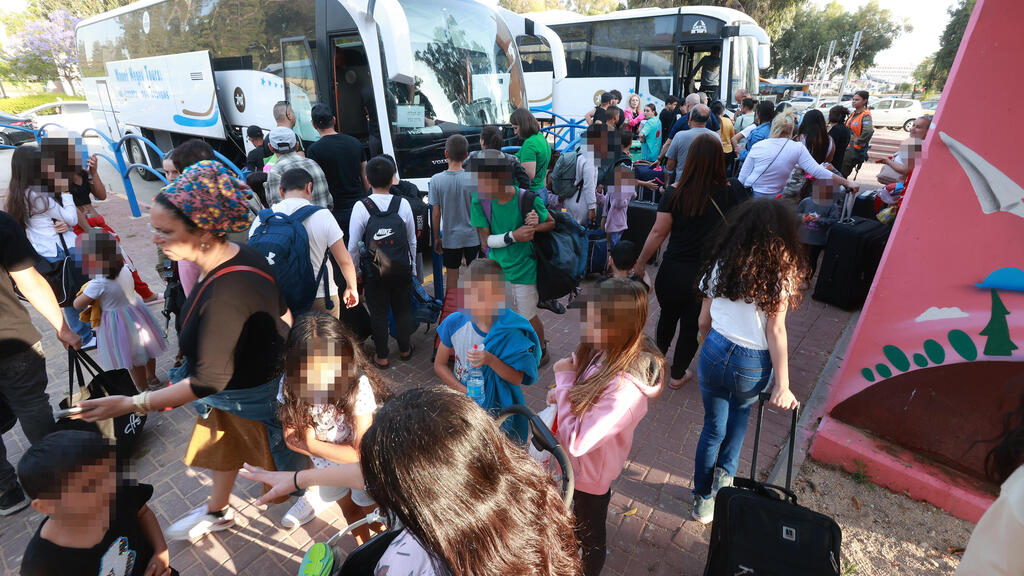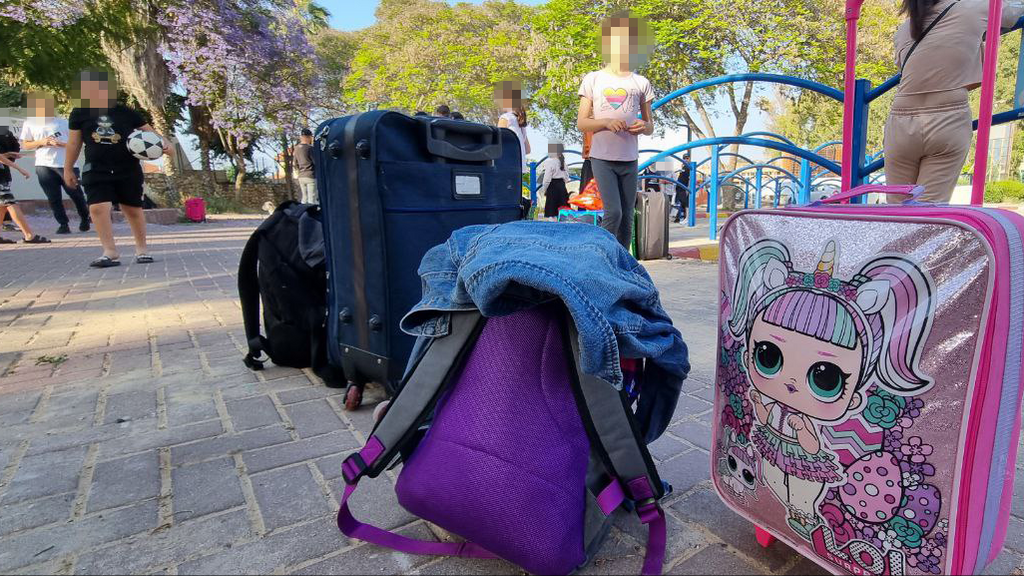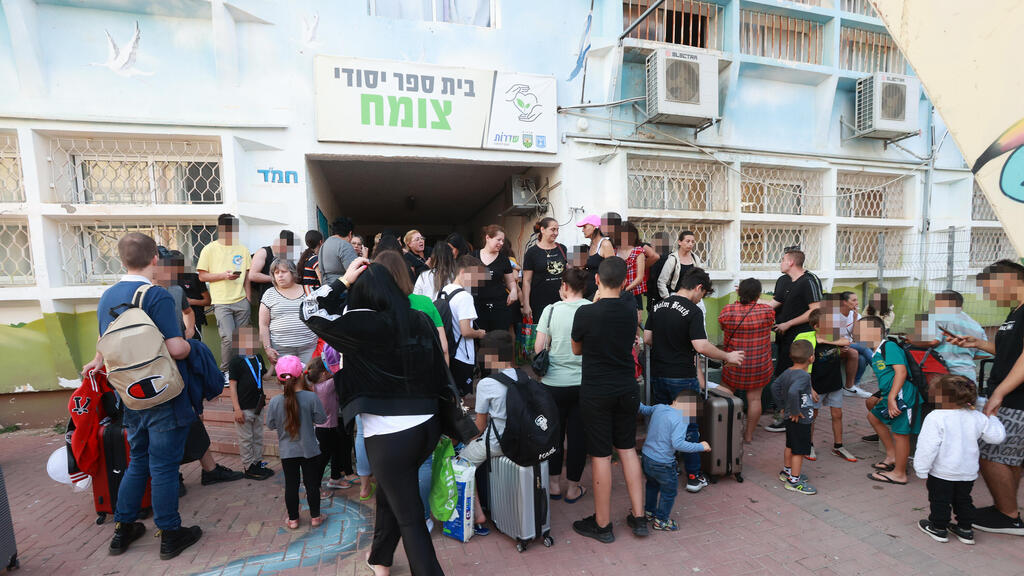Getting your Trinity Audio player ready...
Thousands of Sderot residents were evacuated from the city Tuesday evening, accompanied by members of the Home Front Command as part of Mashav Ruach (Breeze) program, a response to Operation Shield and Arrow launched by the Israel Defense Forces early in the morning. The first phase of the evacuation included hundreds of families leaving on 25 buses. Most of them traveled to hotels in the Dead Sea.
Related Stories:
Ramona Sayag, a Sderot resident who evacuated with her family, told Ynet that "a social worker called me and told me that I was going on vacation with the children due to the security situation. I know that if I had stayed then there would have been a catastrophe with the children."
Sayag told Ynet that "there is a feeling of fear. There are many dead in Gaza, and as soon as there are missiles here, it is one big catastrophe for the children."
Sayag said she was afraid to even leave the house to evacuate, "but I came here quickly in a taxi. As long as there are no missiles flying then it's fine. I'm glad we're being taken out to a different atmosphere."
"I wish that they would take care of this situation and that there would be something different here – both for us and for them. There are also children and people in Gaza just like us, except that there is also a different population there that presents us with different facts," she said.
Earlier, in the morning, hundreds of residents were evacuated from the enclave, in the framework of the Mashav Ruach program, an evacuation program coordinated and funded by the Defense Ministry, which is responsible for financing the stays in guest rooms, hotels and hostels. Local authorities are holding exit logs of departing families, and each Gaza border community has a designated location to house the displaced.
Residents of Gaza border communities evacuated to the Shalom Hotel in Jerusalem, the El Hayam Hotel in Netanya, the Ana Hostels, Kibbutz Ramat Rachel, Kibbutz Sdot Yam, Kibbutz Ma'agan Michael, hotels and hostels in Eilat and to guest rooms in the north of the country. The first to evacuate were those with special needs, families on welfare and the elderly.
Sderot is preparing for another large evacuation on Wednesday, which will also include thousands of residents. The Mashav Ruach program was formulated by the National Emergency Authority (NAE) in the Ministry of Defense, in cooperation with the local authorities, based on previous rounds of fighting in Gaza.
The Ministry of Defense said that the program "is operated by local authorities and enables every resident in communities adjacent to the Gaza border to evacuate to accommodations defined in advance by the authorities with the help of the state. This is based on pre-existing contracts and early planning by the communities, which are tailored to their specific circumstances."
The local authorities of communities on the Gaza border held a situational assessment at noon on Tuesday to figure out how many families left and how many were remaining. In some communities, only "those with essential positions" remained, including emergency teams and dairy farmers.
Hanan, a resident of a Gaza border community, left Tuesday morning with his family. "We are already practicing, to know what to do," he said. "It's unpleasant, to say the least. It puts everyone in a tizzy, but it's inevitable. For a long time there has been a feeling that Islamic Jihad is playing with us."
The heads of the authorities in the south were informed around 2:00 a.m. about the operation that was launched in Gaza. Itamar Revivo, head of the Ashkelon Coast Regional Council, said that his municipality has been preparing for such an event.
"We are in direct contact with the IDF and the security forces, and the Home Front Command. We announced the cancelation of all the frameworks, today is a day off for formal activities, but we also canceled the informal activities, roads were blocked, alternative roads were announced, we also closed the beaches, we canceled all the planned gatherings," Revivo said. "We are preparing to provide the necessary response for the residents."
The head of the Sha'ar HaNegev Regional Counci, Ofir Liebstein, said that upon receiving the update about the operation, teams went in the early hours of the morning to the localities to disperse the celebrants at the Lag B'Omer bonfires.
"There are times when you have to react and there are times when you have to take the initiative. Usually after there is an operation by the ID, the quiet period is longer and I hope it will be like that this time as well," said Liebstein.




